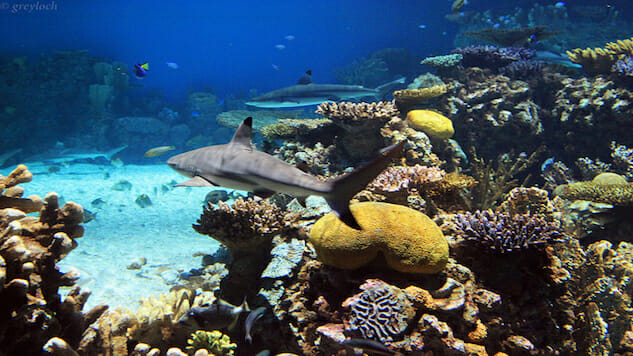The Decline of Reef Predators Could Mean Disaster For Reefs

A trip to see coral reefs isn’t complete without sighting some big predators like sharks and barracuda. Sadly, up to 90 percent of reef predators have disappeared from the Caribbean due to overfishing, disrupting the delicately balanced ecosystem and leaving visitors disappointed.
John Bruno, a marine biologist from the University of North Carolina at Chapel Hill, and Abel Valdivia, a study co-author, studied the reefs and released their findings in the journal Science Advances. Bruno explained that the loss of these predators not only means a decline in tourism for the islands, but also a dramatic increase in small fish that then in-turn put added stress on the environment, as is common when a deer population grows too quickly and vegetation suffers.
The team surveyed 39 reefs across the Bahamas, Cuba, Florida, Mexico and Belize in order to determine how much fish had been lost and to study the differences between over-fished and healthy reefs. Reefs that once teemed with life and were balanced are now suffering and dying as a result of people’s impact.
However, the study also revealed that if predatory fish were reintroduced to certain reefs, known as supersites, they could be revitalized and restored back to their original state.
-

-

-

-

-

-

-

-

-

-

-

-

-

-

-

-

-

-

-

-

-

-

-

-

-

-

-

-

-

-

-

-

-

-

-

-

-

-

-

-








































